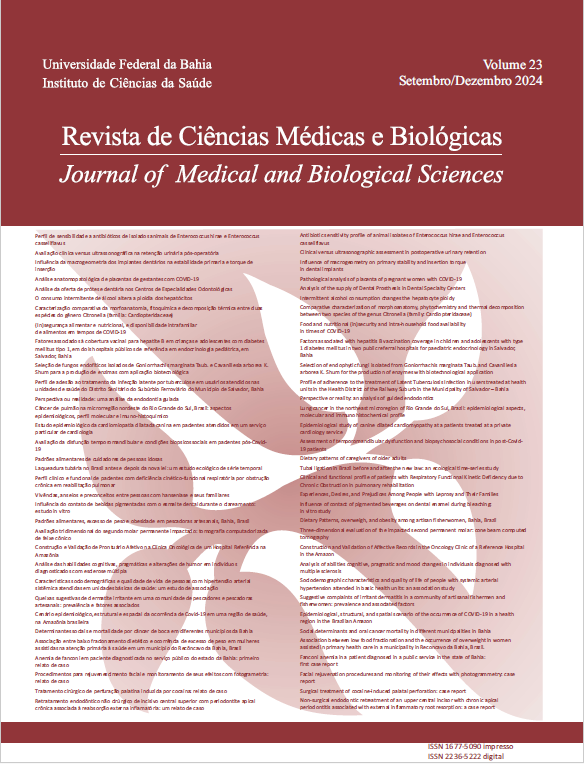LUNG CANCER IN THE NORTHEAST MICROREGION OF RIO GRANDE DO SUL: EPIDEMIOLOGICAL ASPECTS, MOLECULAR AND IMMUNOHISTOCHEMICAL PROFILE
DOI:
https://doi.org/10.9771/cmbio.v23i3.58988Keywords:
Lung cancer, Biomarkers, EpidemiologyAbstract
Objective: To analyze the epidemiological profile of patients affected by lung cancer between 2005 and 2021 in the northeastern microregion of Rio Grande do Sul and to describe the molecular and immunohistochemical profile through the EGFR, PD-L1 and ALK biomarkers. Methods: This was a cross-sectional, retrospective study with quantitative and qualitative analysis carried out by the access to the Hospital Cancer Registry (RHC) database of a High Complexity Oncology Unit located in the northeast microregion of RS. Epidemiological parameters were histological type, age, gender, stage at diagnosis, family history, smoking and alcohol consumption, as well as data on PD-L1, ALK and EGFR biomarkers. Results: For the epidemiological profile, 1139 records were analyzed. Adenocarcinoma was the most frequent histological type (43.9%), the median age of patients was 65 years and men were more affected than women, corresponding to 66.4%. The most prevalent staging was IV (metastatic) and most patients were smokers, non-alcoholics and had a family history of cancer. Regarding the biomarkers, only 49 requests were made during the period. PD-L1 positivity, EGFR alterations and ALK gene rearrangements were observed in 43.8%, 20% and 7.5% of the cases, respectively. Conclusion: The epidemiological data cover 17 years of cases and corroborate previous studies evaluating lung cancer profile. Some variations of the analyzed biomarkers were verified in comparison to other national and international studies; however, more investigation is necessary to better assess the profile of biomarkers in the region.
Downloads
Downloads
Published
How to Cite
Issue
Section
License
Copyright (c) 2024 Journal of Medical and Biological Sciences

This work is licensed under a Creative Commons Attribution 4.0 International License.
The Journal of Medical and Biological Sciences reserves all copyrights of published works, including translations, allowing, however, their subsequent reproduction as transcription, with proper citation of source, through the Creative Commons license. The periodical has free and free access.


